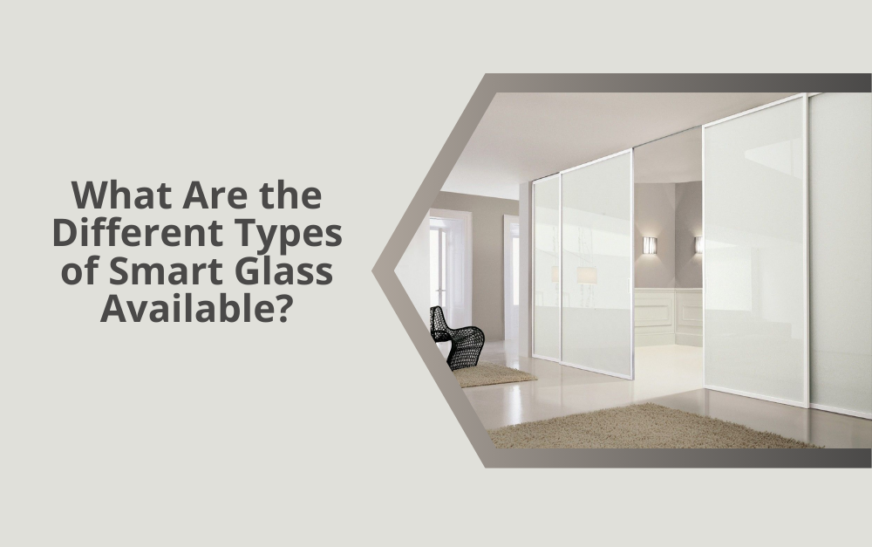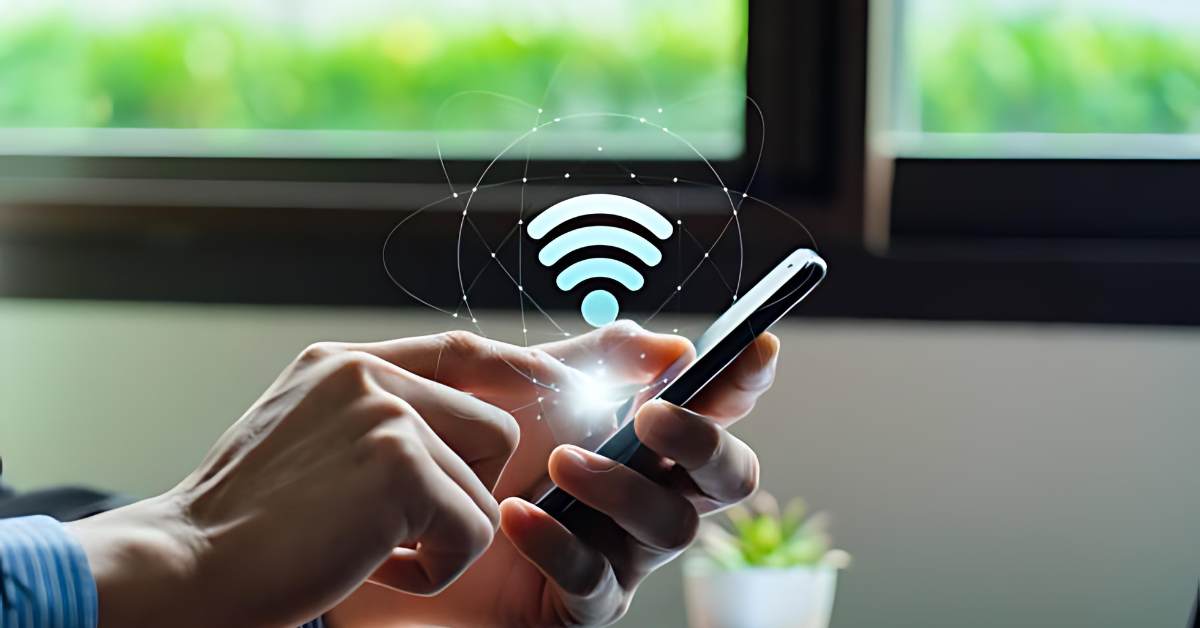Smart glass is an innovative technology that has been gaining popularity in recent years. It offers various functionalities that can enhance privacy, energy efficiency, and aesthetic appeal in residential, commercial, and industrial settings. But what exactly is smart glass, and what are the different types available? In this comprehensive guide, we will explore the different types of smart glass, their features, applications, and benefits.
Introduction to Smart Glass
What is Smart Glass?
Smart glass, also known as switchable glass or dynamic glass, is a type of glass that can change its properties, such as transparency and opacity, in response to an external stimulus. This stimulus can be electrical, thermal, or optical, depending on the type of smart glass.
How Does Smart Glass Work?
The working principle of smart glass varies based on its type. Generally, smart glass contains special materials or coatings that react to the external stimulus, causing the glass to change its state. For example, in electrically switchable smart glass, an electric current can cause the glass to change from clear to opaque.
Benefits of Smart Glass
Smart glass offers numerous benefits, including:
- Privacy Control: Instantly switch between transparent and opaque states for privacy.
- Energy Efficiency: Reduce heating, cooling, and lighting costs by controlling sunlight.
- Aesthetic Appeal: Modern and sleek design options for various applications.
- UV Protection: Block harmful UV rays, protecting interiors and occupants.
Now, let’s delve into the different types of smart glass available.
Types of Smart Glass

1. Electrochromic Smart Glass
How It Works
Electrochromic smart glass uses a thin coating of materials like tungsten oxide on the glass surface. When an electrical voltage is applied, the ions in the coating move, causing the glass to change color and opacity.
Applications
- Windows: Used in residential and commercial buildings for energy-efficient windows.
- Skylights: Installed in skylights to control the amount of light and heat entering a space.
- Automobiles: Used in car windows and sunroofs to reduce glare and heat.
Benefits
- Energy Savings: Reduces the need for artificial lighting and air conditioning.
- Customizable Tint: Allows for various levels of tinting for different needs.
- Long Lifespan: Durable and requires minimal maintenance.
2. Suspended Particle Device (SPD) Smart Glass
How It Works
SPD smart glass contains a layer of suspended particles within a liquid. When an electrical current is applied, the particles align, allowing light to pass through. Without the current, the particles are randomly oriented, blocking light.
Applications
- Commercial Buildings: Used in office windows and conference room partitions.
- Residential Homes: Installed in home windows for privacy and energy efficiency.
- Transportation: Applied in airplane windows and luxury vehicle windows.
Benefits
- Rapid Response: Changes from clear to opaque in milliseconds.
- High Durability: Resistant to wear and tear.
- Variable Light Control: Allows for precise control of light and privacy.
3. Polymer Dispersed Liquid Crystal (PDLC) Smart Glass
How It Works
PDLC smart glass consists of liquid crystal droplets dispersed in a polymer. When an electrical current is applied, the liquid crystals align, making the glass transparent. Without the current, the glass appears opaque.
Applications
- Interior Partitions: Used in offices and homes to create flexible spaces.
- Bathrooms: Installed in shower enclosures for privacy.
- Retail Displays: Used in storefronts to attract attention and provide privacy.
Benefits
- Privacy on Demand: Instant switch between clear and opaque states.
- UV Protection: Blocks harmful UV rays.
- Energy Efficiency: Reduces heating and cooling costs.
4. Thermochromic Smart Glass
How It Works
Thermochromic smart glass changes its properties in response to temperature changes. It typically contains a special coating that reacts to heat, causing the glass to change its tint.
Applications
- Buildings: Used in windows and skylights to regulate indoor temperatures.
- Greenhouses: Installed in greenhouse roofs to control light and heat.
- Automobiles: Applied in car windows to reduce heat and glare.
Benefits
- Passive Operation: No need for electrical power.
- Energy Savings: Reduces the need for air conditioning.
- Comfort: Maintains a comfortable indoor environment.
5. Photochromic Smart Glass
How It Works
Photochromic smart glass changes its tint in response to light intensity. It contains special molecules that react to UV light, causing the glass to darken.
Applications
- Eyewear: Used in sunglasses and prescription glasses.
- Buildings: Installed in windows to reduce glare and heat.
- Automobiles: Applied in car windows and sunroofs.
Benefits
- Automatic Adjustment: Responds to changing light conditions.
- UV Protection: Blocks harmful UV rays.
- Convenience: No need for manual adjustment.
6. Nano-Technology Smart Glass
How It Works
Nano-technology smart glass incorporates nanomaterials that change their properties in response to an external stimulus, such as light, heat, or electricity.
Applications
- Buildings: Used in windows and façades for energy efficiency and aesthetics.
- Automobiles: Applied in car windows and sunroofs.
- Consumer Electronics: Used in screens and displays.
Benefits
- Enhanced Performance: Improved energy efficiency and durability.
- Customizable: Can be tailored for specific applications.
- Advanced Features: Offers additional functionalities like self-cleaning.
Choosing the Right Smart Glass
Considerations for Selection
When choosing smart glass, consider the following factors:
- Application: Determine where the smart glass will be used (e.g., windows, partitions, skylights).
- Functionality: Decide on the desired features (e.g., privacy, energy efficiency, UV protection).
- Budget: Consider the cost of the smart glass and installation.
- Durability: Evaluate the lifespan and maintenance requirements.
Comparing Different Types
Each type of smart glass has its unique advantages and applications. Here’s a quick comparison:
- Electrochromic: Best for energy-efficient windows and customizable tint.
- SPD: Ideal for rapid light control and high durability.
- PDLC: Suitable for privacy on demand and interior partitions.
- Thermochromic: Perfect for passive temperature regulation.
- Photochromic: Great for automatic light adjustment and UV protection.
- Nano-Technology: Advanced features and enhanced performance.
Installation and Maintenance
Installation
- Professional Installation: Ensure proper installation by qualified professionals to maximize performance and longevity.
- Compatibility: Check compatibility with existing structures and systems.
Maintenance
- Cleaning: Follow manufacturer guidelines for cleaning to avoid damage.
- Regular Inspection: Conduct regular inspections to identify and address any issues promptly.
- Warranty: Ensure the smart glass comes with a warranty for added protection.
Applications of Smart Glass
Residential Applications
- Windows: Enhance privacy and energy efficiency in homes.
- Shower Enclosures: Provide privacy in bathrooms.
- Skylights: Control light and heat entering the home.
Commercial Applications
- Office Windows: Improve energy efficiency and employee comfort.
- Conference Rooms: Create flexible, private meeting spaces.
- Retail Displays: Attract customers and provide privacy for displays.
Industrial Applications
- Factories: Regulate light and heat in industrial buildings.
- Cleanrooms: Maintain privacy and control light in sensitive environments.
- Greenhouses: Optimize light and temperature for plant growth.
Transportation Applications
- Automobiles: Enhance comfort and privacy in cars.
- Airplanes: Improve passenger comfort and reduce glare.
- Trains: Provide privacy and reduce heat in train cabins.
Healthcare Applications
- Hospitals: Improve patient privacy and comfort.
- Clinics: Create private spaces for consultations.
- Nursing Homes: Enhance comfort and reduce energy costs.
Consumer Electronics Applications
- Smartphones: Improve display visibility and privacy.
- Tablets: Enhance user experience with adaptive screens.
- Laptops: Provide privacy and reduce glare.
Future of Smart Glass
Technological Advancements
The future of smart glass looks promising with ongoing technological advancements. Researchers are developing new materials and coatings to improve performance, durability, and functionality. Innovations in nanotechnology and artificial intelligence are expected to play a significant role in the evolution of smart glass.
Market Growth
The smart glass market is projected to grow significantly in the coming years. Increasing demand for energy-efficient solutions, rising awareness about environmental sustainability, and advancements in smart home technologies are driving this growth. Smart glass is expected to become a standard feature in modern buildings, vehicles, and consumer electronics.
Emerging Trends
- Integration with Smart Home Systems: Smart glass will be increasingly integrated with smart home systems for seamless control and automation.
- Sustainability: Focus on eco-friendly materials and manufacturing processes.
- Customization: Growing demand for customizable smart glass solutions to meet specific needs and preferences.
Conclusion
Smart glass is a versatile and innovative technology that offers numerous benefits across various applications. From enhancing privacy and energy efficiency to improving comfort and aesthetics, smart glass is transforming the way we interact with our environments. Understanding the different types of smart glass and their unique features can help you make an informed decision for your specific needs. As technology continues to advance, the future of smart glass looks bright
, promising even more exciting possibilities and applications.
In summary, smart glass is an excellent investment for anyone looking to enhance their living or working space. Whether you’re a homeowner, business owner, or industrial operator, there’s a type of smart glass that can meet your needs and improve your quality of life.
Note :- Read more related blogs at https://hollywoodrag.com/
Feel free to submit more guest posts through Links Building Servcies - Best Prices. Buy Author Account / 1$ Guest Post Here























